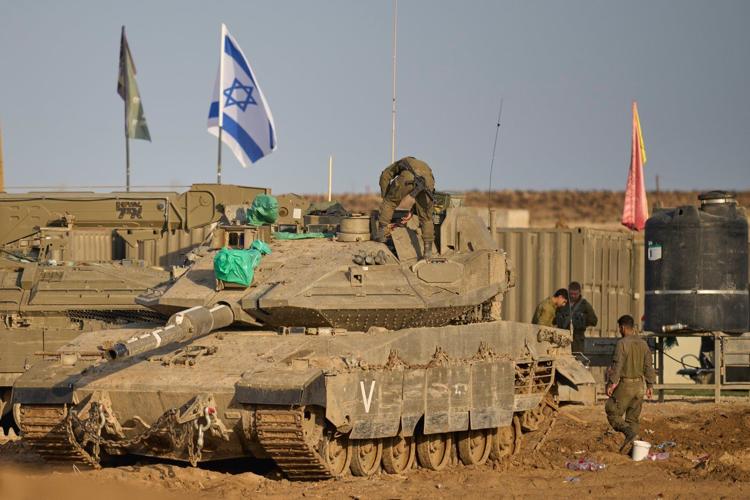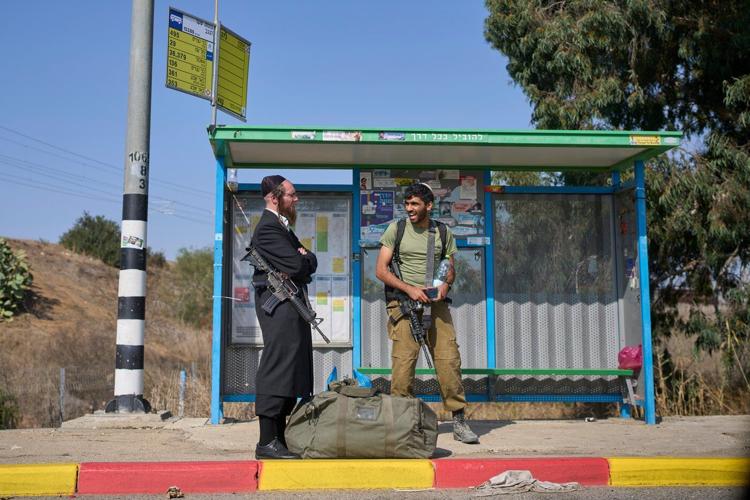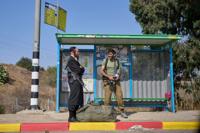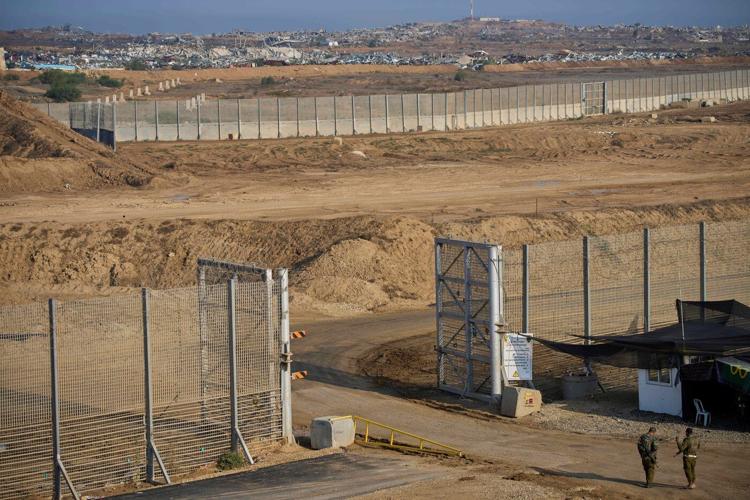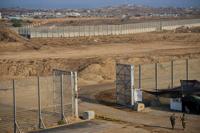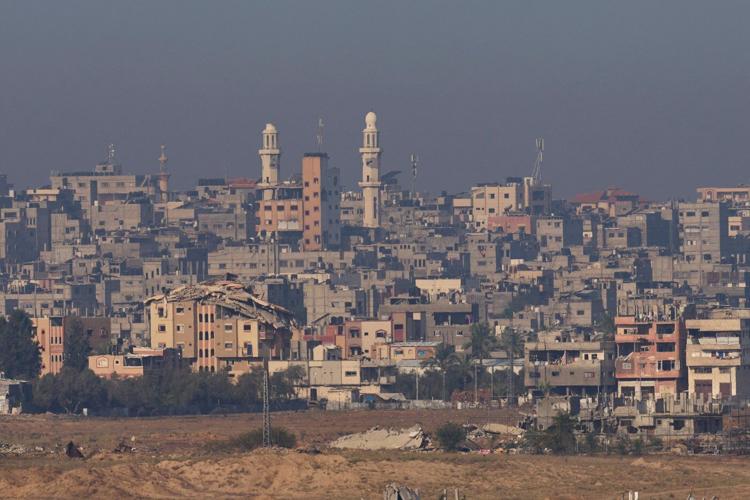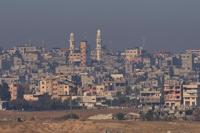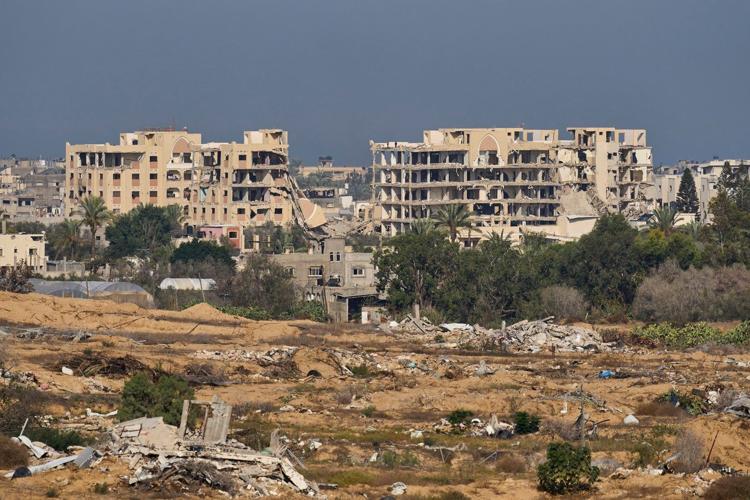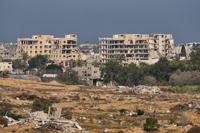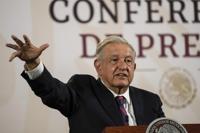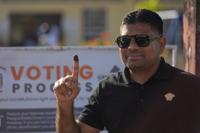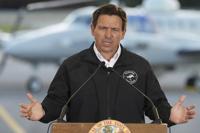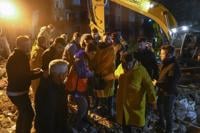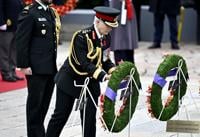JERUSALEM (AP) — Israeli Prime Minister Benjamin Netanyahu on Tuesday applauded the United Nations' approval of the Trump administration’s blueprint to secure and govern Gaza, while Hamas rejected the plan as a foreign instrument of control.
The resolution that passed the U.N. Security Council on Monday authorizes an international stabilization force to provide security in war-devastated Gaza, approves a transitional authority called the Board of Peace to be overseen by President Donald Trump and to an independent Palestinian state.
“We believe that President Trump‘s plan will lead to peace and prosperity because it insists upon full demilitarization, disarmament and the deradicalization of Gaza,” Netanyahu’s office wrote on X Tuesday.
The resolution provides a wide mandate for the international force, including overseeing the borders, providing security and demilitarizing Gaza. Authorization for the board and force expire at the end of 2027.
Hamas rejects plan
The U.S. plan calls for the stabilization force to ensure "the permanent decommissioning of weapons from non-state armed groups.” It authorizes the force “to use all necessary measures to carry out its mandate” in compliance with international law, which is U.N. language for the use of military force.
Hamas said Monday that the force's mandate including disarmament “strips it of its neutrality, and turns it into a party to the conflict in favor of the occupation.” It said the resolution did not “meet the level of our Palestinian people’s political and humanitarian demands and rights." Hamas demanded that any international force be under U.N. supervision, deploy only at Gaza’s borders to monitor the ceasefire and operate exclusively with Palestinian institutions.
Palestinian Authority welcomes resolution after statehood is included
The Palestinian Authority welcomed the resolution and said it was ready to immediately implement it on the ground. It said it would cooperate with the U.S., the U.N., and other Arab and European states.
Palestinians largely view the PA, which governs semiautonomous zones in the Israeli-occupied West Bank, as weak and corrupt. The authority's security coordination with Israel is extremely unpopular, and many Palestinians see it as a subcontractor of the occupation.
The U.N. vote came about following nearly , when Arab nations and the Palestinians pressed the United States to strengthen language about Palestinian self-determination. The proposal still gives no timeline or guarantee for an independent state, only saying it’s possible after advances in the reconstruction of Gaza and reforms of the Palestinian Authority.
The U.S. revised the resolution to say that after those steps, “the conditions may finally be in place for a credible pathway to Palestinian self-determination and statehood.”
“The United States will establish a dialogue between Israel and the Palestinians to agree on a political horizon for peaceful and prosperous coexistence,” it adds.
Resolution gains support from Muslim-majority and Arab countries
A key to the resolution’s adoption was support from Arab and other Muslim nations that had been critical for the ceasefire and potentially could contribute to the international force. The U.S. mission to the United Nations distributed a joint statement Friday with Qatar, Egypt, the United Arab Emirates, Saudi Arabia, Indonesia, Pakistan, Jordan and Turkey calling for “swift adoption” of the U.S. proposal.
Both Indonesia, the world’s most populous Muslim-majority nation, and Turkey said they would work toward a two-state solution, which Netanyahu has opposed.
Turkish officials have previously said Turkey is ready to contribute to an international force in Gaza despite Israeli opposition to a Turkish presence.
The vote shores up hopes that Gaza’s fragile ceasefire will be maintained following a war set off by Hamas’ surprise attack on southern Israel on Oct. 7, 2023, which killed about 1,200 people. Israel’s offensive has killed over 69,000 Palestinians, according to the Gaza Health Ministry, which doesn’t distinguish between civilians and combatants but says the majority are women and children.
U.K. Foreign Secretary Yvette Cooper said Tuesday that the international community needed to “work together to take forward the 20 point plan and to turn it into a just and lasting peace.” Cooper called for “urgent action to open all the crossings, lift restrictions and flood Gaza with aid.”
What else the US proposal says
Trump said the members of the Board of Peace will be named in the coming weeks, along with “many more exciting announcements.”
The plan calls for the stabilization troops to secure Gaza border areas, along with a Palestinian police force that they have trained and vetted. The force will coordinate with other countries to secure should closely consult and cooperate with neighboring Egypt and Israel.
As the international force establishes control, the resolution says Israeli forces will withdraw from Gaza “based on standards, milestones, and time frames linked to demilitarization.” These must be agreed to by the stabilization force, Israeli forces, the U.S. and the guarantors of the ceasefire, it says.
—�Ĕ
Associated Press writers Edith Lederer at the United Nations, Suzan Frazer in Ankara, Turkey and Niniek Karmini in Jakarta, Indonesia contributed to this report.
___
Follow AP’s war coverage at

